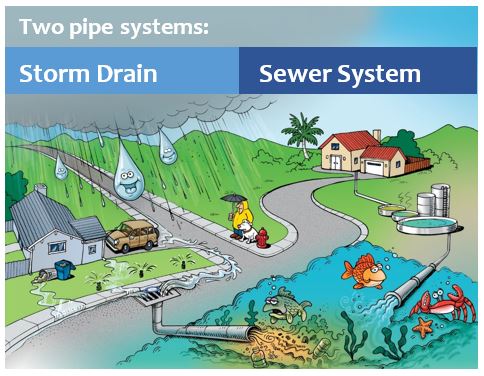To report pollution or water waste violations use Report It! or call Public Works 760-839-4668.
Industrial and commercial business have a responsibility to comply with state and federal regulations to prevent adverse environmental impacts as a result of business activities. Pollution prevention through the implementation of Best Management Practices (BMPs) eliminates harmful pollutants from entering local waterways untreated via the storm drain system.

Eliminating irrigation runoff protects waterways and helps your home or business save water and energy.
In compliance with State storm water regulations, the City's Environmental Programs Division maintains an inventory of commercial and industrial facilities, and inspects them annually to ensure that best management practices are being used effectively. The City provides efficient service by combining storm water inspections with Sewer Pretreatment inspections for Fats, Oils, and Grease (FOG). The City is also required to notify relevant businesses of any requirements relating to the Industrial General Permit (IGP), and to notify the regional Water Quality Control Board of any businesses suspected of not enrolling in the IGP.
Recycling and waste management programs are administered by the Recycling & Waste Reduction Division.
The City inspects agricultural properties and provides educational resources to producers on how to implement best management practices. For more information and resources, visit the Agricultural Resources Ad Hoc Subcommittee webpage.